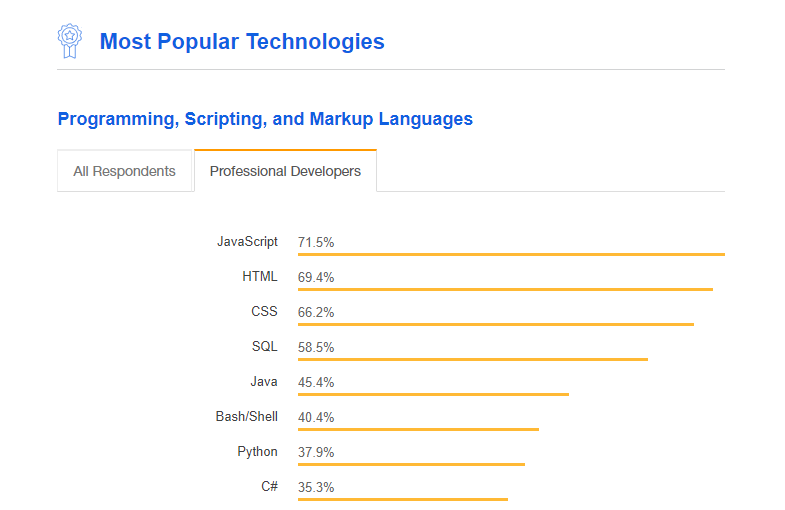Latest news about Bitcoin and all cryptocurrencies. Your daily crypto news habit.
Disclaimer: This is completely my personal opinion and derived from my personal experiences. Feel free to share any thoughts.
I still remember in 2013, I started learning my first programming language in C++, wrote my first “Hello World”, and was excited like a little kid. Now that I have been programming professionally and fortunate enough to work with many different technologies, I have gathered some thoughts on my personal top 5 languages that people should learn in 2019. So, if you are new to the coding world, I recommend these languages.
With that said, let’s get right into the first programming language on my list:
Python
Many developers love Python and I’m sure most professional programmers have done some coding in Python at least once in his/her career. According to the stats provided by Tiobe Index, it shows that Python is indeed still gaining popularity:
Why Python?
- Use cases in various types of software application including web application, network servers, desktop utilities, data processing, machine learning, and many more
- One of the largest/active/supportive communities, so finding support from a fellow Python developer won’t be as difficult whether you’re a beginner or an expert
- Amazing libraries (Django, Numpy, etc.)
- Very accessible (beginner friendly)
- By far, the most popular language used by data scientists for machine learning
To me, Python is a must-learn language as a developer.
JavaScript
How can we not talk about JavaScript at this time in age? JavaScript is literally everywhere! According to Stack Overflow’s developer survey in 2018, JavaScript is the most popular language on its platform.
Why JavaScript?
- Very accessible (beginner friendly)
- Extensive use cases in different software (browsers, mobile app, web app, IoT devices, and a lot more)
- One of the fastest growing communities
- High demand for JavaScript developers
- Popular websites/apps use JavaScript that run on Node.js (Netflix, PayPal, LinkedIn, Uber, and many more)
If you like fast-evolving language, JavaScript may be the right language for you.
Go
For many of you, this may be a small surprise. Go isn’t exactly one of the languages that comes to our minds at first, but Go is actually a very cool language to code.
Why Go?
- Performance: Go uses goroutines (Go’s biggest strength) to execute instructions concurrently with less resources
- Strict typing allows easy debugging compare to Python (interpreted)
- No inheritance makes Go applications easy to maintain
- Go is designed/supported by Google meaning that this language was designed for massive scalability
- Just like C/C++, Go is compiled, doesn’t use a virtual machine, and performs very close to lower level languages. However, Go has a built-in garbage collection unlike C/C++. How cool is that!
If your application is struggling with performance and readability, Go is definitely the way to go (no pun intended). For beginners, this may slightly be difficult to learn because Go relies heavily on pointers which may not be easy to grasp as a new programmer.
Final Thoughts
Keep in mind that this is my personal opinion. However, I do believe that these 3 languages share something in common: fun to code. Coding should be fun. I can assure you that Python, JavaScript, and Go will deliver.
Aside from fun, these 3 languages will boost excitement in developing applications that are not only up to trend but ready for scalability which is a big issue for a lot of developers nowadays.
Share your thoughts on the 3 programming languages to learn in 2019!
3 Programming Languages to Learn in 2019 was originally published in Hacker Noon on Medium, where people are continuing the conversation by highlighting and responding to this story.
Disclaimer
The views and opinions expressed in this article are solely those of the authors and do not reflect the views of Bitcoin Insider. Every investment and trading move involves risk - this is especially true for cryptocurrencies given their volatility. We strongly advise our readers to conduct their own research when making a decision.



